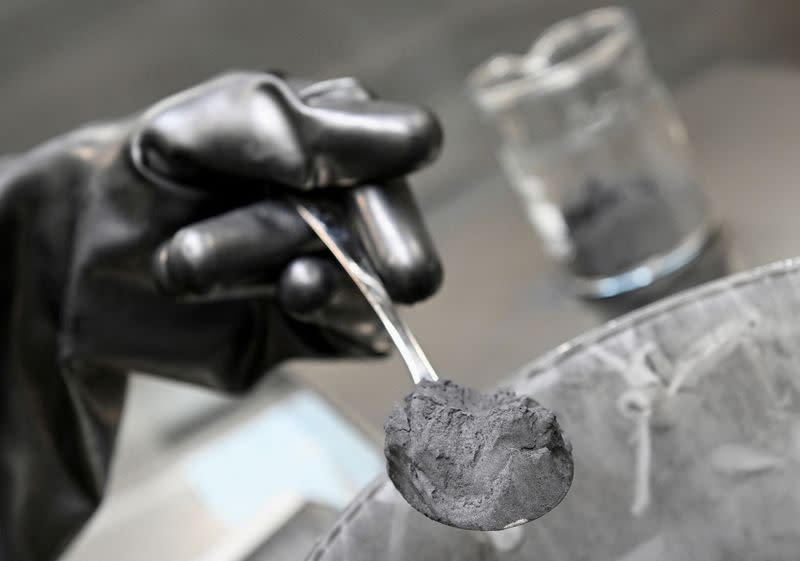South Korea welcomes US decision to extend use of Chinese graphite in EVs

SEOUL (Reuters) - South Korea on Wednesday welcomed a U.S. decision to extend automakers' eligibility for electric vehicle tax credits for cars containing Chinese graphite through 2026.
The U.S. is trying to wean the electric vehicle battery chain away from China through its Inflation Reduction Act which is being closely monitored by automakers as they make investment decisions.
South Korea's industry ministry said it will continue to seek to secure key battery materials so domestic battery manufacturers and carmakers can maintain their competitiveness in the U.S. market by meeting the requirements of the Inflation Reduction Act.
"In the case of graphite, it was difficult to diversify the supply chain in a short period of time, making it difficult to receive U.S. EV tax credits for batteries ... we have been actively consulting with the U.S. government, and our request (of extension of graphite use) was reflected in the final rules," the industry ministry said in a statement.
The ministry said South Korean battery makers, including LG Energy Solution, Samsung SDI and SK On that attended the meeting, welcomed the reprieve.
The new rules now let car buyers get up to $7,500 in tax credits for electric vehicles (EV) containing Chinese graphite through 2026.
The ministry added that it would provide 9.7 trillion won ($7.11 billion) in financial aid to support efforts of the country's EV sector to secure a self-sufficient supply chain.
Last week, the U.S. Treasury Department said it would give automakers until 2027 to reduce some hard-to-trace minerals like graphite contained in anode materials and critical minerals contained in electrolyte salts, binders, and additives.
The Industry Ministry said it will help companies meet requirements such as submitting plans to the U.S. on how they will diversify graphite supplies from 2027 and make “accurate calculations” of the values of battery minerals to receive tax credits.
($1 = 1,363.5100 won)
(Reporting by Heekyong Yang;Editing by Elaine Hardcastle)


